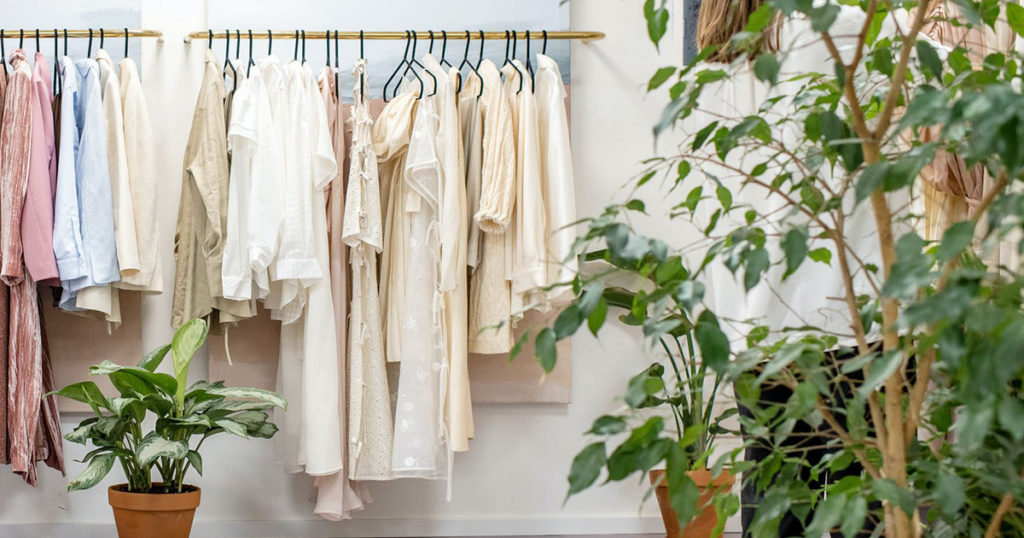In recent years, we are increasingly seeing green change all over the world, as great attention is being given to environmental issues. The fashion industry, aware of the importance of this movement is also moving in the same direction.
Can fashion really be sustainable?
CHANGE NEEDED
For a very long time the fashion industry has been silent about environmental issues and reluctant to provide transparent information on how their business operations impact the environment.
It was then realized that a radical change of mentality was really paramount and much more targeted actions began to be implemented.
For most situations it must be stressed that this shift in attitude was led by the consumer and their demands for greater information. People have come to expect brands to have a greater environmental consciousness and to establish clear values by which the customer can come to expect a brand to stand by. Issue now is ensuring that ‘green’ promises communicated through clever marketing is more than just a ploy to make customers feel better about their purchase, but moreover brands need to be serious about making a genuine difference.
GREEN APPROACH IN FASHION
The urgent question is if all these changes are happening fast enough given that we are heading towards a precipice. The theme of ecology today cannot be ignored because in 2020 we simply cannot ignore the environmental issue especially if you are a global brand whose visibility is undeniable.
Fortunately, however, many brands have accepted the collective commitment and have begun to consider this aspect seriously and changes are evident in their new product offering; some opted, for example, to create a real line of ecological garments that differed from those ordinarily present their collection, just to highlight once again their focus and consideration for our biosphere.
An example can be untreated cotton clothes, eco bags that are depopulating or, even, garments created with recycled waste.
NOT ONLY ATTENTION TO DISTRIBUTION
Over the years, the controversies that have arisen relate mostly to the production of garments themselves, particularly the quality of the fabrics and the impact of the manufacturing process.
Fundamentally, the entire supply chain process needs to be analysed and reworked, because if, for example, a producer used the best organic cotton in the world for his clothes, but then transported his products with ships that are powered by coal, this makes his one good deed somewhat redundant in the overall scheme. In short, there must be a congruency with each manufacturing step taken in addition to changing our perspective on how we understand the product life cycle in relation to the environment.
KEYWORD: TRANSPARENCY
It seems that everyone wants the truth and the vehicle is transparency. We have seen many examples and are now beginning to understand how important it is today for a brand in the fashion industry to make conscious changes in the way they operate. In order to make improvements they need to start with having a reality check.
Can a brand fully understand every detail of how their business impacts the environment?
Perhaps it’s a work in progress but quick steps need to be taken in this race to improve. It seems as though the first step starts with education, business need to truly understand every aspect of their supply chain with a discerning eye for detail and be driven by curiosity, to understand the unknown enabling better informed choices.
The pressure for full disclosure will act as motivating force for companies to implement positive changes as the information they provide will influence how their customers perceive them and in turn dictate the level of trust between business and customer. Everyone knows that knowledge is power, transparency is the key to that knowledge, it must be demanded.
GREEN FASHION: PROPENSITY TO PURCHASE
Unfortunately, as we wrote a little while ago, there are still too many companies who are not taking the environmental issue seriously and are complacent in their thinking and approach.
Exactly the opposite has been demonstrated by the consumers at large, who are now more than ever much more willing to even spend a little more for items created in a way that is environmentally friendly. his trend is getting stronger, especially with Millennials and Gen Z who hold environmental issues close to their hearts, it’s become an integral part of their value system.
Fortunately, this trend is becoming more and more relevant: brands can no longer stand by the window and watch. It’s time to act, all of us together.
Read Green Carpet Fashion Awards 2020 and learn more about sustainable fashion.
